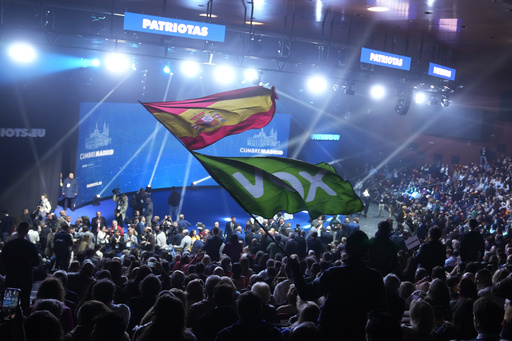LONDON — Tensions are escalating globally as various nations react to the recent actions of the United States under President Donald Trump. Saudi Arabia expresses deep anger, while Denmark finds itself in a defensive position. Colombia has shifted its stance, and Mexico and Canada face precarious situations regarding potential tariff conflicts with the U.S. Meanwhile, China has initiated retaliatory measures, sparking a trade conflict among major economic powers. The United Kingdom, traditionally confident in its close ties with the U.S., has been resorting to its established method of discreet diplomacy during this tumultuous period.
This chaotic scenario seems to have been triggered by President Trump’s brash, unconventional approach to diplomacy and governance, which many leaders worldwide are now trying to navigate cautiously. For instance, Australia’s Prime Minister Anthony Albanese responded to Trump’s assertion that the U.S. would develop the war-torn Gaza Strip into a luxurious destination, stating, “I’m not going to, as Australia’s prime minister, give a daily commentary on statements by the U.S. president.”
Globally, leaders are contemplating Trump’s disruptive method of governance, particularly concerning America’s established roles in organizations such as NATO, the United Nations, and the World Bank, all vital for maintaining international stability post-Cold War. Trump’s skepticism towards NATO has raised concerns about its future, especially as he threatens to withhold U.S. defense support from members who do not meet specific defense spending metrics. Furthermore, upon returning to office, Trump initiated another withdrawal from the World Health Organization, leading to significant worry among global leaders about the potential repercussions of losing crucial support from the U.S.
Heather Hurlburt from Chatham House articulated concerns that Trump’s actions might herald a lasting transformation in the global order, indicating that this would not just be a temporary shift. Outside political circles, the ramifications of Trump’s decisions are being felt acutely by those reliant on American foreign aid for essential services, as ongoing plans to diminish the USAID program threaten humanitarian missions established over the past several decades. Observers from organizations like the Kosovo Women’s Network expressed feelings of apprehension about their futures amidst these developments.
With his reelection and strong support from figures like Elon Musk, Trump appears to be amplifying his controversial policies globally. His policies and statements — including drastic suggestions like taking over the Panama Canal — are coming at such a rapid pace that many governments are struggling to react effectively. This has led to what Trump’s supporters term “flooding the zone,” where opposition becomes difficult to organize against the barrage of policies and statements.
Colombia recently provided a clear example of this dynamic when President Gustavo Petro initially resisted demands to accept a large number of migrants entering the U.S. However, after Trump threatened steep tariff increases, Colombia consented to the influx, seemingly setting a precedent for responding to U.S. pressure.
The enforcement methods employed by Trump have resonated with his base, many of whom are grappling with economic uncertainties and view his actions as efforts to safeguard taxpayer money by realigning spending in a way that favors American interests. In discussions surrounding regions like Greenland and Gaza, Trump has leaned into an “America First” narrative, forgoing potential military interventions to develop these areas, although leaders worldwide have dismissed the practicality of these ideas. Saudi Arabia notably rejected the concept, which could have destabilizing effects on existing agreements in the Middle East.
In Denmark, Prime Minister Mette Frederiksen felt compelled to underscore her nation’s commitment to alliance obligations, especially after Vice President JD Vance made disparaging comments about Denmark’s contributions to NATO. Following her diplomatic tour in Europe, Frederiksen has been vocal about the need for a united European response concerning Trump’s ambitions regarding Greenland, a territory that Denmark supports robustly.
Different leaders throughout Europe echoed similar sentiments, with a recent EU summit turning from discussions on defense strategies against Russia to the implications of Trump’s policy directions. Polish Prime Minister Donald Tusk remarked on the necessity of unity among European nations to mitigate the impending threats posed by Trump’s trade policies, describing them as a crucial test for European solidarity.
Meanwhile, discussions in Greenland are heating up as local leaders express a desire for complete independence from Danish oversight, emphasizing their disinterest in relinquishing their autonomy to the United States. Greenland’s minister of business and trade voiced that the contentious rhetoric surrounding Trump’s plans is causing unease among them. However, Trump’s far-right supporters’ rally in Madrid showcased a division in perspective, with some leaders embracing Trump’s agenda wholeheartedly and indicating a willingness to engage with his administration.
As the global landscape shifts in response to U.S. policies, reactions vary significantly depending on the political landscape and the interests of different nations. The uncertainty surrounding Trump’s long-term strategy continues to keep world leaders on alert, complicating alliances and diplomatic engagements moving forward.
